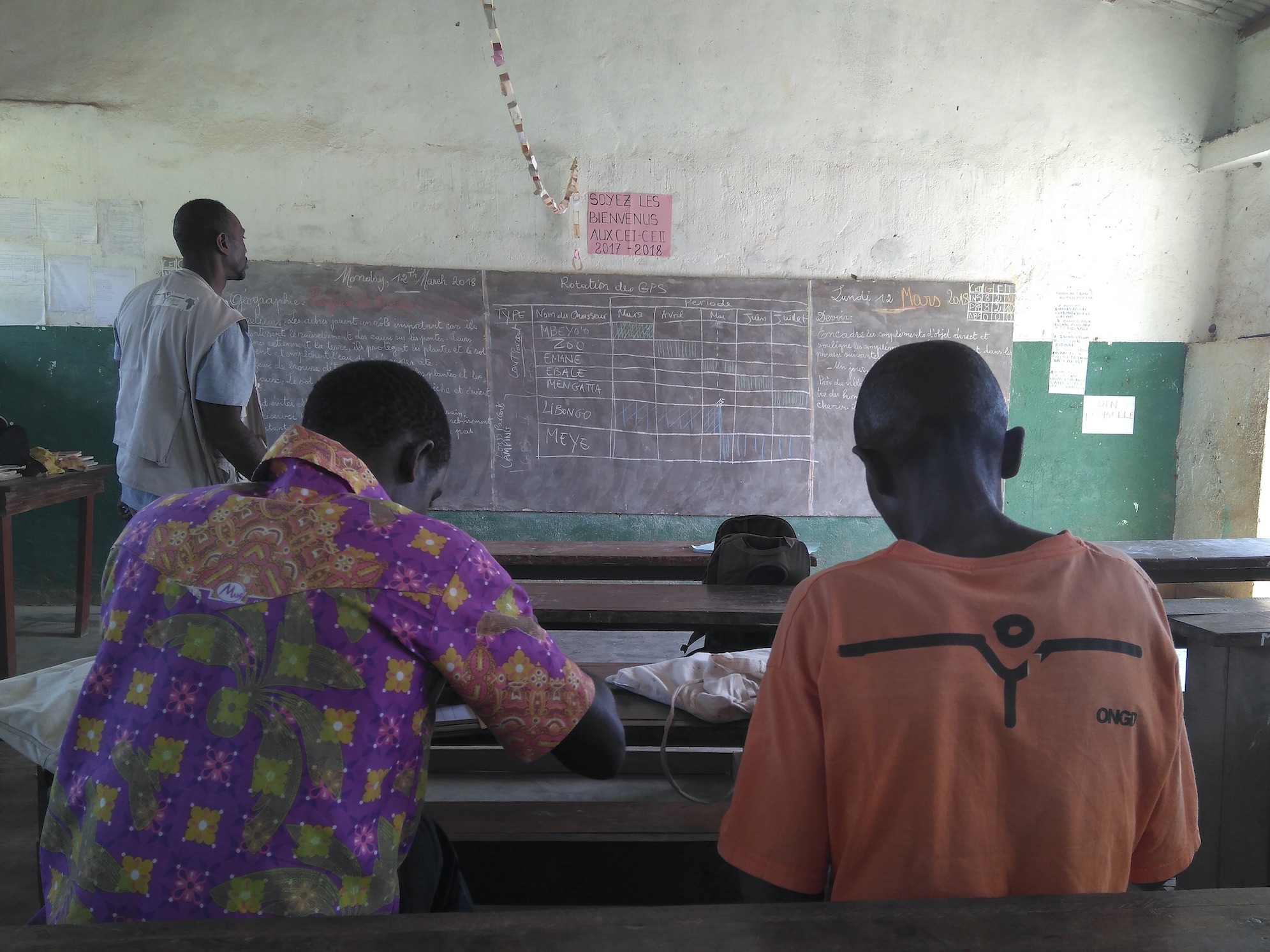
Traditionally foragers and hunter-gatherers, many of the Indigenous communities scattered throughout the dense tropical forests of Central Africa have been forced off their customary lands into precarious roadside settlements and more sedentary circumstances.
The livelihoods of these people, about a million widely referred to as Pygmies — a controversial term of colonial origins but which has no universally agreed replacement — in the Congo Basin are at risk from food insecurity, inadequate nutrition, armed conflicts, land-tenure disputes and incursions made by resource extraction operations.
Malnutrition is prevalent and life expectancy is 35 years of age for Pygmy people, due also to extreme poverty and lack of medical care, while their Bantu neighbors live roughly 22 years longer.
With an average height of 155 cm (5 feet), Pygmy people have a relatively short stature, and two new studies – one on children and the other on adults – published in Human Ecology show that they have a consistently lower Body Mass Index (BMI), the measures used by the World Health Organization to determine malnutrition by assessing body fat in relation to a person’s height and weight.
Yet, with Pygmies, just how much their height is determined by genetic predisposition and how much is the result indicative of stunting — a potential nutritional outcome for adults who in childhood do not receive adequate nutrition — is unclear. A shortcoming of the universal BMI barometer height-for-age parameter, is that it fails to accurately account for their shorter stature.
This finding results from the study of an unprecedented sample of more than one thousand children from a number of Baka Pygmy communities in southeast Cameroon.





These data were gathered by a team of international scientists from Britain’s Manchester Metropolitan University (MMU), the Center for International Forestry Research (CIFOR) and the Spanish non-governmental organization Zerca y Lejos in partnership with Cameroon’s Ministry of Forests and Wildlife (MINFOF). The project was funded by the UK government’s Darwin Initiative and supported by the U.S. Agency for International Development as part of the Bushmeat Research Initiative of the CGIAR research program on Forests, Trees and Agroforestry.
“Because stunting is used as a marker to identify malnutrition on an individual level and to quantify the prevalence of malnutrition on a population level, the failure to distinguish between genetically determined short stature and nutrition-based linear growth failure makes stunting inadequate as a diagnostic tool,” said lead author Stephan Funk, director of the consultancy Nature Heritage and a former senior lecturer at Chile’s University of the Frontier.
Funk and colleagues, who designed the research project on the use of forest products, subsistence agriculture and human health to learn more about the connection between malnutrition, disease and food, posit that premature death is likely due to malnutrition and a general underweight trend beginning in childhood. Due to inherent limitations, inadequate BMI measurements, do not accurately quantify the height-for-age measurement.
“Pygmies aren’t small only because they are underfed, so we need to take their size into account to determine malnutrition,” said J. E. Fa, a senior associate scientist with CIFOR and a Professor at MMU. “BMI goes down as they age, which is unknown in any other group.”
This shortcoming poses a significant challenge in designing food and nutrition policies that could address the nutritional needs of Pygmy people. Currently, research conducted onsite in their communities, shows that they subsist mainly by consuming wild meat and from selling it – earning a paltry estimated daily income of between five and 80 cents a day.





Coronavirus complications
As COVID-19 spills out across the African continent, the Baka and other Pygmy groups are not only under an increasing health risk if the virus spreads unabated, but also due to their lack of access to medical care, the difficulty they would face social-distancing and any potential future vaccination strategies.
Their sole source of dietary protein is also in jeopardy as governments consider banning wild meat, encouraged by conservation organizations. The origins of the SARS-COV2 coronavirus are zoonotic and thought to have originated as a vector of a pangolin, bat or felid in a wet market in Wuhan, China, before infecting humans.
“The Pygmy population in Africa faces a potential double whammy,” Fa said.
“Any rational solution to these issues must exploit the potential dangers of the COVID-19 pandemic as an opportunity to take stock of the unprecedented pressure on Pygmy populations so that support may be provided.”
Animal welfare, food security, disease risk and traditional rights must be taken into consideration, Fa added.


Becoming more sedentary has not lowered malnutrition levels, as the Pygmy people lack alternative lands on which to grow their own food, which the researchers say would help bridge nutrient gaps unmet by natural resources.
“Through better domestic food production, and with support to enable more sustainable extraction of such wild resources as animals and plants, the general health of local people would improve,” Fa said.
The Darwin Initiative is funded by Britain’s Department for Environment, Food and Rural Affairs and the Department for International Development. This work was also supported by the U.S. Agency for International Development’s Forestry and Biodiversity Office
We want you to share Forests News content, which is licensed under Creative Commons Attribution-NonCommercial-ShareAlike 4.0 International (CC BY-NC-SA 4.0). This means you are free to redistribute our material for non-commercial purposes. All we ask is that you give Forests News appropriate credit and link to the original Forests News content, indicate if changes were made, and distribute your contributions under the same Creative Commons license. You must notify Forests News if you repost, reprint or reuse our materials by contacting forestsnews@cifor-icraf.org.
Further reading
COVID wild meat ban deprives forest dwellers
Webinar: COVID-19 and what it means for wild meat
Importance of Indigenous Peoples’ lands for the conservation of Intact Forest Landscapes
No conservation silver lining to Ebola
Human activities link fruit bat presence to Ebola virus disease outbreaks
Coronavirus COVID-19 Global Cases
Wildlife and protected area management
Centers for Disease Control and Prevention: Zoonotic Diseases
Management of intact forestlands by Indigenous Peoples key to protecting climate
Mix up the diet with some wild meat
Sustainable wildlife management key as Guyana faces rapid economic change






















